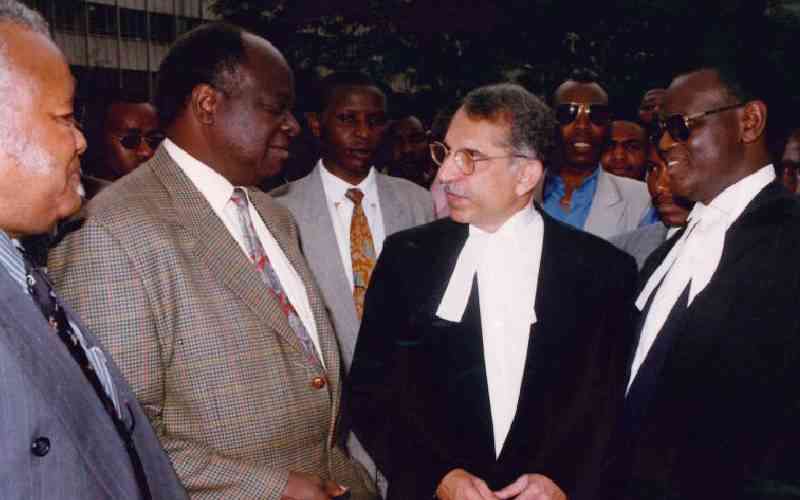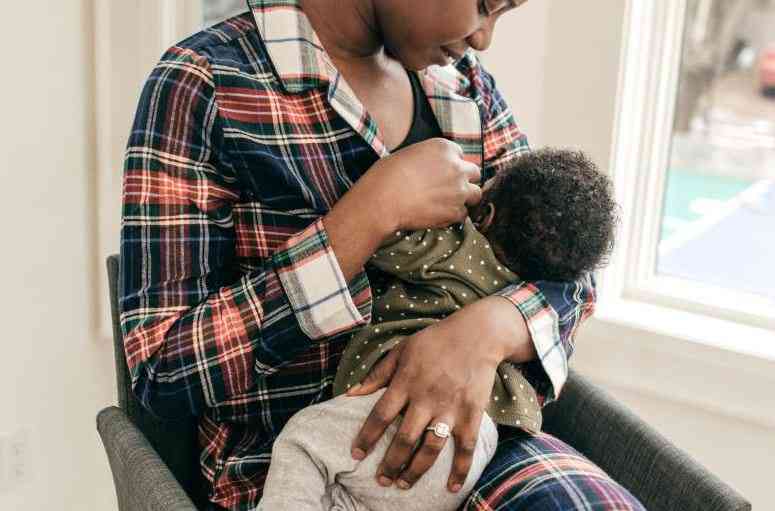
Presidential election petitions are a recent phenomena in Kenya's political landscape. This is partly because of Kenya's colonial history and the single political party system founding President Mzee Jomo Kenyatta adopted after assuming power in 1963.
Under the one-party rule, opposition to the sitting president was never countenanced and those who as much as dared, risked the wrath of the party's rank and file, if not outright expulsion. The presidential election ended at the party nominations stage at that time. And even then, that was done to merely fulfill a legal requirement that demands that elections be held after every five years.
When Mzee Kenyatta died in 1978, and Daniel Moi succeeded him, his ardent critics within the Kanu party had no choice but to join the chorus of his endorsement. The first presidential election petition in Kenya is traced to 1992 after the return of multi-party politics. It was also the first time Kenyans were directly voting in a presidential election.
Then President Moi garnered 1.9 million of the total votes in a poll that had seven contestants who divided the opposition support. Kenneth Matiba was second with 1.4 million votes.
A harsh critic of President Moi, Matiba cited massive irregularities in the conduct of the poll, ballot stuffing and outright rigging in his petition, asking the court to nullify Moi's victory. Edith, Matiba's wife, while exercising the power of attorney, signed the petition on behalf of her husband. When the matter came up for hearing before a three-bench judge, Moi filed a preliminary objection, arguing that the petition was incompetent because it was not signed by Matiba. Since there were no proper rules at that time guiding presidential petitions, Moi argued that the petition was not in conformity with the National Assembly Election Petition Rules.
But the president would suffer a major blow when the court rejected his objection and ruled that the petition was properly before the court.
"The signature in the petition is what Matiba offered as his and we understand him as saying not just that it is the signature of his attorney, but also that it is his official signature since he became unable to write," said Justices Edward Torgbor, Sheikh Amin and J.A Couldrey who heard the matter. "The generality of the power held by her is by design to enable her to do whatever is necessary for or ordinarily incidental to affect her express authority in the affairs of the donor of the power of attorney."
Signature question
The court further argued that the signature in the petition is the one Matiba used regularly and "we understand him saying so."
"It was also the same signature that was accepted and declared valid by the electoral commission when clearing him to contest," they ruled.
Moi was represented by lawyers Bill Inamdar, the late Maxwell Ombogo, Philip Murgor and AB Shah, who later become Court of Appeal judge.
Matiba was represented by GBM Kariuki while the electoral commission was represented by Salim Dhanji, Satish Gautama, D. Adere and Eliud Ngaira. Moi appealed the decision where he sought orders of the Court of Appeal to strike out Matiba's substantive petition on the same grounds that he did not sign the petition. Appellate judges A.M Cocker, M.G Muli and R.S.C. Omolo agreed with Moi and dismissed the case. The second petition was in 1998 after the 1997 presidential election but it was struck out on a technicality.
Moi was still on the ballot and the contest pitted him against Mwai Kibaki of the Democratic Party (DP), who at the time was leader of the opposition.
Moi had won the election with 2,445,801 votes while Kibaki garnered 1,895,527 votes. In his petition, Kibaki argued that malpractices such as rigging had cost him the election. But the case did not go to full hearing and was struck out because Kibaki failed to serve Moi in person with the petition.
A week after filing the petition, the DP leader published in the Kenya Gazette, a notice of the petition informing Moi and then Electoral Commission of Kenya boss Samuel Kivuitu of the case and directed them to pick copies of the plaint at the court registry.
When the dispute came up for hearing before Justices Emmanuel O'Kubasu, Mbogholi Msagha and Moijo ole Keiwua, Moi claimed he had not been served in person within 28 days after the election.
The judges agreed and dismissed Kibaki's petition, triggering a long drawn-out appeal before Chief Justice Bernard Chunga and appellate Judges Riaga Omolo, AB Shah, AA Lakha and Effie Owuor. Kibaki, who was represented by James Orengo, told the court he could not serve Moi personally because of the tight security surrounding the president.
On December 10, 1999, the judges dealt the final blow to his appeal when they ruled that he had not shown that any efforts were made to serve Moi.
"On who is to be served, we doubt if a party who has taken a great deal of trouble to draw up a petition would be ignorant as to the person or persons against whom he is complaining and the reliefs he seeks from that person or persons," read their judgement. To serve a person with a document, the judges argued, meant making personal delivery and not resorting to other means like a gazette notice. The judges said the notice in the Kenya Gazette only directed Moi to obtain a copy of the petition from the office of the Registrar of the High Court when the law insisted on personal service.
They also dismissed claims of evading personal service, ruling that election petitions involved Kenyans who prized their titles of 'honourable' and would not contemplate that those involved in petitions would willfully take cover in order to avoid the process of the law. After the 2002 and 2007 elections no presidential petition was filed. In 2007, Raila Odinga who had lost to Kibaki argued that he did not trust the courts to deliver justice.
 The Standard Group Plc is a multi-media organization with investments in media platforms spanning newspaper print
operations, television, radio broadcasting, digital and online services. The Standard Group is recognized as a
leading multi-media house in Kenya with a key influence in matters of national and international interest.
The Standard Group Plc is a multi-media organization with investments in media platforms spanning newspaper print
operations, television, radio broadcasting, digital and online services. The Standard Group is recognized as a
leading multi-media house in Kenya with a key influence in matters of national and international interest.

